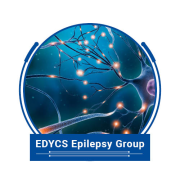Edycs Epilepsy Group is the leading, voluntary non-governmental organisation founded on 24 December 1997 by a group of volunteers, patients and health professionals, whose aims are to assist people with epilepsy through advocacy in accessing quality health care, provision of free medication, diagnosis assistance, training in epilepsy care, campaigning for changes in attitudes and behaviors-just some issues Edycs Epilepsy Group addresses every day in the Republic of Mauritius.
Our Mission
The mission of Edycs Epilepsy Group is to promote lifelong access and opportunities to people who have epilepsy and their families, to become fully included and participating members in the community.
Our Key Objectives
- Promote epilepsy awareness and understanding in the Republic of Mauritius including Rodrigues islands
- Promote epilepsy health care services via Edycs Epilepsy Health Service Centers Mauritius and Rodrigues islands
- Provide inclusive education for children with epilepsy via Edycs Help to Grow SENS Schools in Mauritius and Rodrigues
- Work in close collaboration with stakeholders in particular Government bodies, Corporate Sector and Civil Society at large
- Develop a mid- and long-term Strategic Plan to address epilepsy
- Network with key local, regional and international players in epilepsy
- Mobilize resources for the attainment of the above key objectives
Who We Are
The International Bureau for Epilepsy (IBE) improves the social condition and quality of life of people with epilepsy and those who care for them. We have a vision of the world where everywhere ignorance and fear about epilepsy are replaced by understanding and care.
The IBE is made up of laypersons and professionals interested in the medical and non-medical aspects of epilepsy. We address social problems such as education, employment, insurance, driving licence restrictions and public awareness.
We do this through funding social improvement programmes for people with epilepsy and their families, creating means for worldwide exchange of information and, where possible, setting standards which provide an international policy focus and identity for all persons with epilepsy.
Much of this work is accomplished through the IBE working commissions, composed of volunteers who are experts in their subjects.
The IBE was established in 1961 and has grown to almost 140 chapters in over 100 countries all around the globe. The Bureau is the recognised international umbrella body representing national epilepsy organisations that have a specific interest in improving the social condition and quality of life of people with epilepsy and their careers.
The IBE is an incorporated, not-for-profit, international organisation constituted in accordance with law and registered in the District of Columbia, USA. (Charter ID 721834-DNP).
The Bureau also works in close liaison with the International League against Epilepsy (ILAE), an organisation of medical professionals involved in the medical and scientific issues of epilepsy. IBE is funded mainly by membership dues from its chapters and by financial support from other contributors.


